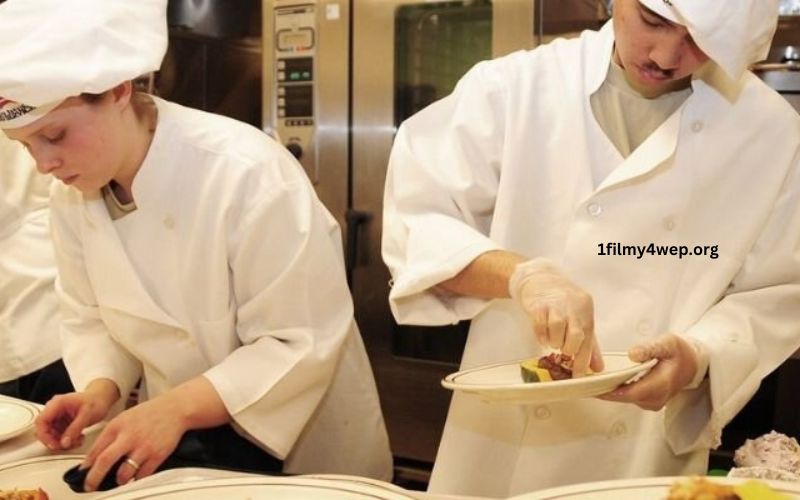Becoming a successful chef is a dream for many, but it takes more than just a love for food to excel in this demanding profession. A good chef is a multifaceted individual who possesses a unique blend of skills, qualities, and a deep passion for the culinary arts. From mastering technical expertise to maintaining a customer-centric approach, the traits that define a good chef are both complex and captivating. In this article, we will explore the key characteristics that make a chef truly exceptional.
Passion for Cooking: The Foundation of a Good Chef
At the heart of every great chef lies a burning passion for cooking. This passion is the driving force that fuels their creativity, inspires their innovation, and sustains their dedication to the craft. A good chef is someone who not only loves the process of preparing food but also derives immense satisfaction from seeing the joy and delight on the faces of their diners. They are constantly seeking new ways to push the boundaries of their culinary skills, experimenting with flavors, and striving to create dishes that are both visually stunning and exceptionally delicious.
Your passion for cooking should be evident in every aspect of your work, from the way you handle ingredients to the meticulous attention you pay to every detail of the plating. It’s this unwavering passion that sets you apart from the rest and inspires those around you to share in your culinary journey.
Culinary Skills: Technical Expertise and Knowledge
Becoming a good chef requires more than just a love for food; it also demands a deep understanding of culinary techniques and a vast knowledge of ingredients, flavors, and cooking methods. As a chef, you must have a solid foundation in the fundamentals of cooking, such as proper knife skills, temperature control, and food safety protocols. Additionally, you should be well-versed in various cuisines, cooking styles, and the latest culinary trends to ensure that your dishes remain innovative and relevant.
Mastering the technical aspects of cooking is essential, as it allows you to execute your culinary vision with precision and consistency. From searing the perfect steak to crafting delicate pastries, your technical expertise should be honed to perfection, enabling you to consistently deliver high-quality dishes that exceed your customers’ expectations.
Creativity and Innovation: Thinking Outside the Box
The best chefs are those who are not afraid to take risks and think outside the box. Creativity and innovation are the hallmarks of a truly exceptional chef, as they allow you to push the boundaries of traditional cooking and create unique, memorable dishes. Whether it’s reimagining classic recipes or developing entirely new flavor combinations, your ability to think creatively and approach the culinary arts with a fresh perspective will set you apart from the competition.
Embracing creativity means being open to experimentation, exploring new ingredients, and constantly challenging yourself to find new ways to delight your diners. It’s about having the courage to step outside your comfort zone and the willingness to take calculated risks in the pursuit of culinary excellence.
Attention to Detail: Precision and Perfection
In the world of fine dining, the smallest details can make the biggest difference. A good chef is someone who pays meticulous attention to every aspect of the dining experience, from the presentation of the dish to the temperature of the food and the cleanliness of the work environment. Your commitment to precision and perfection should be evident in every aspect of your work, ensuring that each plate that leaves the kitchen is a masterpiece.
Attention to detail is not just about the final product; it’s also about the process. As a chef, you must be diligent in your preparation, carefully measuring ingredients, timing cooking processes, and ensuring that every step is executed with the utmost care. This level of attention to detail not only results in beautifully crafted dishes but also demonstrates your dedication to providing an exceptional dining experience for your customers.
Time Management and Organization: Handling the Kitchen Chaos
The kitchen is a fast-paced, high-pressure environment that demands exceptional time management and organizational skills. As a good chef, you must be able to juggle multiple tasks simultaneously, prioritize your workload, and coordinate the efforts of your team to ensure that every dish is prepared and served in a timely manner.
Effective time management and organization are essential for maintaining the smooth operation of a kitchen. This includes creating detailed prep lists, managing inventory, and developing efficient workflows that minimize waste and maximize productivity. By staying organized and proactively addressing potential bottlenecks, you can navigate the chaos of the kitchen with confidence and ensure that your customers receive their meals in a timely and consistent manner.
Communication and Leadership: Managing a Team Effectively
Running a successful kitchen requires more than just culinary expertise; it also demands strong communication and leadership skills. As a good chef, you must be able to effectively convey your vision and expectations to your team, foster a collaborative work environment, and inspire your colleagues to work together towards a common goal.
Effective communication involves not only giving clear instructions but also actively listening to your team’s feedback and concerns. By fostering open and honest dialogue, you can build a strong, cohesive team that is invested in the success of the kitchen. Additionally, your leadership skills should enable you to delegate tasks, provide constructive feedback, and motivate your team to perform at their best, even in the midst of high-pressure situations.
Adaptability and Flexibility: Dealing with Unexpected Challenges
The culinary world is inherently unpredictable, and a good chef must be able to adapt and respond to unexpected challenges with grace and agility. Whether it’s a last-minute menu change, a shortage of a key ingredient, or a sudden influx of customers, your ability to think on your feet and find creative solutions will be crucial to the success of your kitchen.
Adaptability and flexibility are not just about problem-solving; they also encompass your willingness to embrace change and continuously evolve your culinary approach. As the industry and customer preferences evolve, a good chef must be open to learning new techniques, experimenting with new ingredients, and adjusting their menu to stay relevant and competitive.
Continuous Learning and Improvement: Staying Updated and Evolving
The culinary landscape is constantly changing, and a good chef is one who is committed to continuous learning and improvement. This means staying informed about the latest trends, techniques, and innovations in the industry, and being willing to adapt and evolve your own skills and knowledge accordingly.
Whether it’s attending culinary workshops, reading industry publications, or seeking out mentorship opportunities, your dedication to ongoing education and personal growth will be a key factor in your success as a chef. By continuously expanding your culinary expertise and staying ahead of the curve, you can ensure that your dishes and your overall approach remain fresh, innovative, and in line with the ever-changing demands of the industry.
Love for Ingredients and Flavors: Creating Exceptional Dishes
At the heart of every great dish is a deep appreciation and understanding of the ingredients and flavors that go into it. A good chef is someone who is passionate about sourcing the finest, freshest ingredients and who takes the time to explore the unique properties and nuances of each one.
This love for ingredients and flavors should be evident in the way you handle your mise en place, the care you take in selecting and preparing your components, and the way you combine and balance the various elements of a dish. By approaching each ingredient with reverence and respect, you can create dishes that truly showcase the inherent beauty and complexity of the culinary world.
Customer Satisfaction: The Ultimate Goal of a Good Chef
Ultimately, the true measure of a good chef is the level of satisfaction and delight experienced by their customers. Whether it’s the regulars who eagerly await your seasonal menu updates or the first-time diners who leave your establishment raving about their meal, your ability to consistently deliver an exceptional dining experience is what sets you apart as a culinary master.
As a good chef, your focus should always be on the customer, ensuring that their needs, preferences, and expectations are met or exceeded with every dish that leaves your kitchen. This means not only creating delicious and visually stunning meals but also providing attentive and personalized service, anticipating their needs, and going above and beyond to create a memorable dining experience.
Conclusion
Becoming a good chef is a multifaceted journey that requires a unique blend of skills, qualities, and a deep passion for the culinary arts. From mastering technical expertise to fostering creativity and innovation, the traits that define a successful chef are both complex and captivating. By embracing the characteristics outlined in this article, you can strive to become a true culinary master, one who consistently delights and exceeds the expectations of your customers.
If you’re aspiring to become a chef, or if you’re a seasoned culinary professional looking to take your skills to the next level, consider enrolling in a professional culinary program or seeking out mentorship opportunities. With the right guidance and a commitment to continuous learning and improvement, you can unlock your full potential and become the kind of chef that leaves a lasting impression on every diner who experiences your creations.

